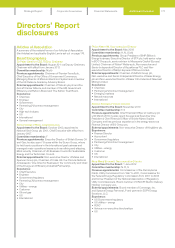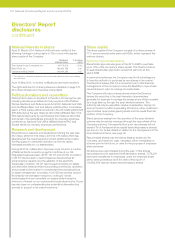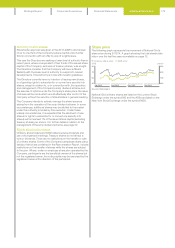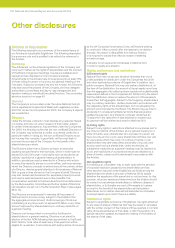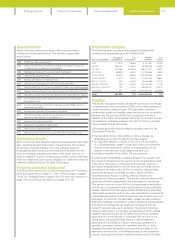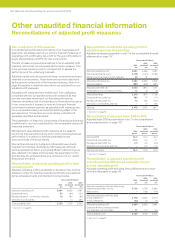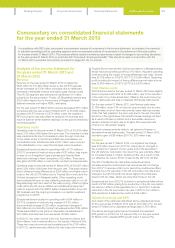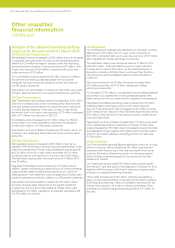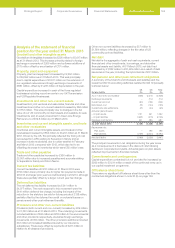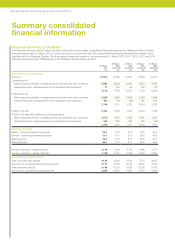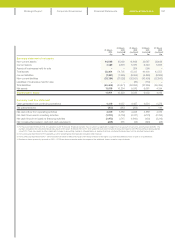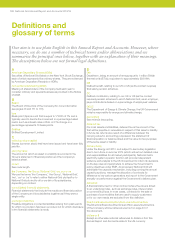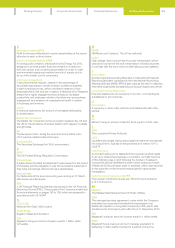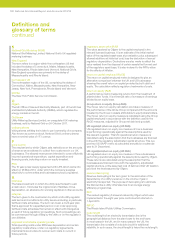National Grid 2014 Annual Report Download - page 182
Download and view the complete annual report
Please find page 182 of the 2014 National Grid annual report below. You can navigate through the pages in the report by either clicking on the pages listed below, or by using the keyword search tool below to find specific information within the annual report.
Taxation of capital gains
US Holders will not be liable for UK taxation on any capital gain
realised on the disposal of ADSs or ordinary shares.
Sales or other taxable dispositions of ADSs or ordinary shares by
a US Holder generally will give rise to US source capital gain or
loss equal to the difference between the dollar value of the amount
realised on the disposition and the US Holder’s dollar basis in the
shares or ADSs. Any such capital gain or loss generally will be
long-term capital gain or loss, currently subject to taxation at
reduced rates for non corporate taxpayers, if the ordinary shares
or ADSs were held for more than one year. The deductibility of
capital losses is subject to limitations.
UK stamp duty and stamp duty reserve tax (SDRT)
Transfers of ordinary shares – SDRT at the rate of 0.5% of the
amount of value of the consideration will generally be payable on
any agreement to transfer ordinary shares that is not completed
bythe execution of a duly stamped instrument of transfer to the
transferee. Where an instrument of transfer is executed and duly
stamped before the expiry of the period of six years beginning with
the date on which the agreement is made, the SDRT liability will be
cancelled, and, if a claim is made within the specified period, any
SDRT which has been paid will be refunded. SDRT is due whether
or not the agreement or transfer of such chargeable securities is
made or carried out in the UK and whether or not any party to that
agreement or transfer is a UK resident. Purchases of ordinary
shares completed by execution of a stock transfer form will
generally give rise to a liability to UK stamp duty at the rate of
0.5%(rounded up to the nearest £5) of the amount or value of the
consideration. Paperless transfers under the CREST paperless
settlement system will generally be liable to SDRT at the rate of
0.5%, and not stamp duty. SDRT is generally the liability of the
purchaser and UK stamp duty is usually paid by the purchaser
ortransferee.
Transfers of ADSs – No UK stamp duty will be payable on the
acquisition or transfer of existing ADSs or beneficial ownership
ofADSs, provided that any instrument of transfer or written
agreement to transfer is executed outside the UK and remains at
all times outside the UK. An agreement for the transfer of ADSs in
the form of ADRs will not give rise to a liability for SDRT. A charge
to stamp duty or SDRT may arise on the transfer of ordinary
shares to the Depositary or The Bank of New York Mellon as agent
of the Depositary (the Custodian). The rate of stamp duty or SDRT
will generally be 1.5% of the value of the consideration or, in some
circumstances, the value of the ordinary shares concerned.
However, following a ruling in 2012 by the First-Tier Tax Tribunal
inthe UK, there is no 1.5% SDRT charge on the issue of ordinary
shares (or, where it is integral to the raising of new capital, the
transfer of ordinary shares) to the Depositary or the Custodian.
The Depositary will generally be liable for the stamp duty or SDRT.
In accordance with the terms of the Depositary Agreement, the
Depositary will charge any tax payable by the Depositary or the
Custodian (or their nominees) on the deposit of ordinary shares to
the party to whom the ADSs are delivered against such deposits.
If the stamp duty is not a multiple of £5, the duty will be rounded
up to the nearest multiple of £5.
The statements regarding US and UK tax laws and administrative
practices set forth below are based on laws, treaties, judicial
decisions and regulatory interpretations in effect on the date of
thisdocument. These laws and practices are subject to change
without notice, possibly with retrospective effect. In addition, the
US statements set forth below are based on the representations
ofThe Bank of New York Mellon as depositary (the Depositary).
These statements assume that each obligation provided for in,
orotherwise contemplated by, the deposit agreement entered
intobetween National Grid Transco plc (now National Grid plc),
theDepositary and the registered holders of ADRs, pursuant to
which ADSs have been issued, dated as of 21 November 1995
and amended and restated as of 1 August 2005, and any related
agreement, will be performed in accordance with its terms.
Beneficial owners of ADSs who are residents or citizens of the
USwill be treated as the owners of the underlying ordinary shares
for the purposes of the US Internal Revenue Code.
For the purposes of the Tax Convention, the Estate Tax
Convention and UK tax considerations, we have assumed that a
holder of ADRs will be treated as the owner of the ordinary shares
represented by those ADSs and this section is based on that
assumption. Despite a ruling in 2012 by the First-Tier Tax Tribunal
in the UK that has cast doubt on this view, HMRC has stated that
itwill continue to apply its long-standing practice of treating such
an ADR holder as holding the beneficial interest in the underlying
shares. As such, this is an area of some uncertainty that may be
subject to further developments.
A US Holder should consult their own advisor as to the tax
consequences of the purchase, ownership and disposition of
ADSs or ordinary shares in light of their particular circumstances,
including the effect of any state, local or other national laws.
Taxation of dividends
Under the Tax Convention, the UK is allowed to impose a 15%
withholding tax on dividends paid to US shareholders controlling
less than 10% of the voting capital of National Grid. The UK
doesnot, however, currently impose a withholding tax on
suchdividends.
Cash distributions received by a US Holder with respect to their
ADSs or ordinary shares generally will be treated as foreign source
dividend income subject to US federal income taxation as ordinary
income, to the extent paid out of National Grid’s current or
accumulated earnings and profits, as determined under US federal
income tax principles. The dollar amount of dividends received
bycertain non corporate US Holders with respect to ADSs or
ordinary shares will generally be subject to taxation at the special
reduced rate normally applicable to long-term capital gains,
provided National Grid (i) is eligible for the benefits of the Tax
Convention and (ii) was not, in the year prior to the year in which
the dividend was paid, and is not, in the year in which the dividend
is paid, a passive foreign investment company (PFIC).
Based on National Grid’s audited financial statements and relevant
market and shareholder data, National Grid believes that it was not
treated as a PFIC for US federal income tax purposes with respect
to its taxable years ending 31 March 2013 and 2014. In addition,
based on its current expectations regarding the value and nature
of its assets, the sources and nature of its income, and relevant
market and shareholder data, National Grid does not anticipate
becoming a PFIC in the foreseeable future. Dividends paid by
National Grid to corporate US Holders will not be eligible for the
dividends received deduction generally allowed to corporations.
Other disclosures
continued
180 National Grid Annual Report and Accounts 2013/14



